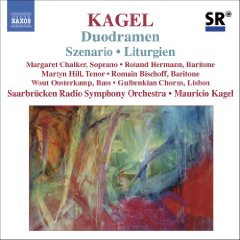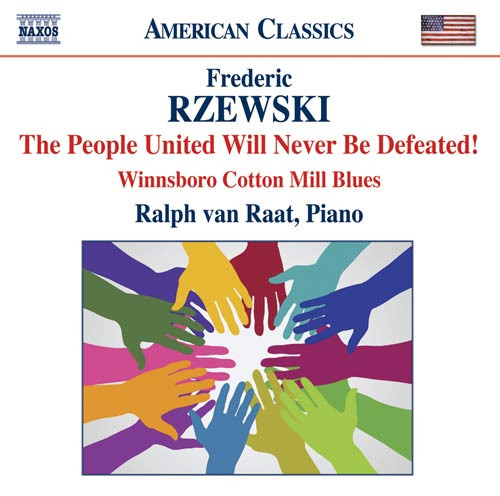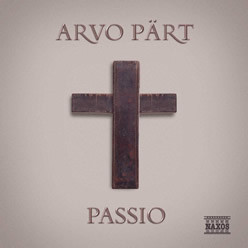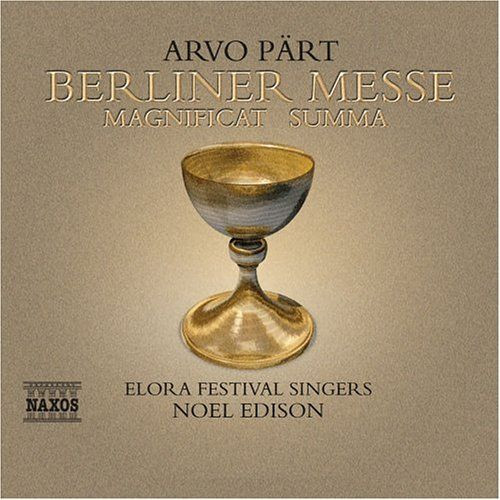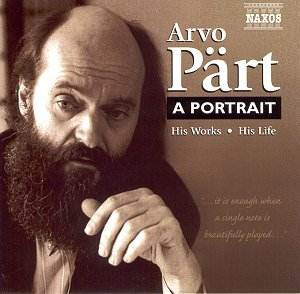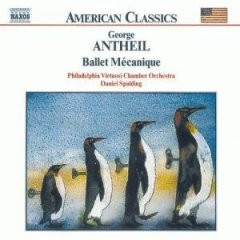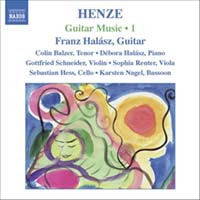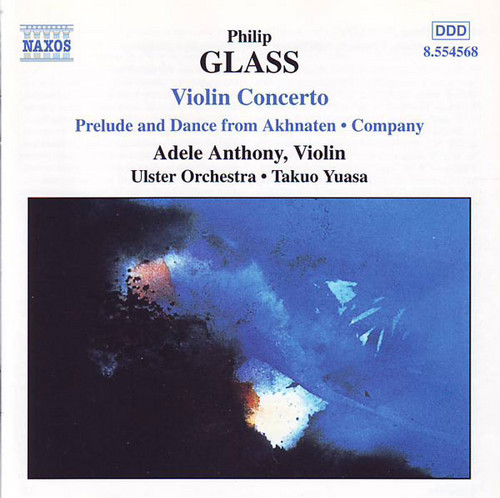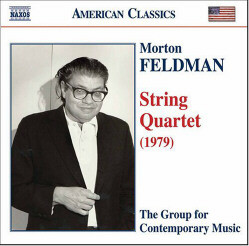NAXOS
This is the world's leading classical label in terms of the number of new releases and the depth and breadth of its catalogue. No other label covers such a wide range of music and categories, from Early Music to Contemporary composers, from instrumental and chamber music to opera. There are American Classics, Japanese Classics, Spanish Classics, Greek Classics and several other national collections of classical music. Naxos is the only truly universal classical label -- in 2006 Naxos released 238 new titles recorded in 29 countries around the world.
Sequenzas I-XIV (Complete)
Although he left an extended and varied output, including five major stage-works, several shorter dramatic pieces, a number of significant choral and orchestral works (not least the famous Sinfonia of 1968), and a sizeable body of instrumental and vocal pieces, the music of Luciano Berio is encapsulated in the Sequenza series running through 34 years of his creativity. Not only have many of them set standards for performance prowess and stamina, each embodies a redefining of the technical limits…
Szenario - Duodramen - Liturgien
Mauricio Kagel is a conductor, writer, teacher and self-taught composer, initially influenced by avant-garde figures such as Boulez and Stockhausen. 'Szenario,' scored for string orchestra and tape, was conceived as an independent work, but quickly found a new role as musical backing to the Luis Bunuel/Salvador Dali silent classic 'Le chien andalou'. Duodramen can be heard either as an orchestral song-cycle in the tradition of Mahler or as an operatic 'final scene' in the tradition of Wagner or …
The People United Will Never Be Defeated!
The People United Will Never Be Defeated! by the left-wing composer and pianist Frederic Rzewski is a landmark in American piano literature. The work comprises 36 variations on a protest song of the same name by the Chilean composer Sergio Ortega. Almost every bar is laden with pianistic virtuosity, yet the listener is carried through some very complex music in a wholly natural way. The variations themselves all symbolize the different phases and aspects of a struggle: from angry, highly-energiz…
Passio
Settings of the Passion are part of an ancient tradition within the Church in which all four Gospel accounts of the Passion are sung to plainchant in Holy Week. Over the centuries the three main elements of the story were separated out onto different reciting tones, and later given to different singers: a priest to sing the words of Jesus, a deacon the main narrative, and a sub-deacon the words of other minor characters including the crowd, Pilate and Peter. One of the earliest surviving Passion…
Berliner Messe
With a number of modern classics already to his name, notably the Symphony No. 3 [Naxos 8.554591], Tabula Rasa [8.554591], Fratres and Cantus in memoriam Benjamin Britten [8.553750], culminating in 1982 with his largest work thus far, the St John Passion [8.555860], Arvo Pärt has during the past 20 years consolidated his reputation as one of the most significant composers at work today with a sequence of magnificent sacred choral works. The present recording provides an overview of Pärt’s mature…
A Portrait
Arvo Pärt: A Portrait. His Works, his Life. It contains 2 CDs with over 2½ hours of music, richly illustrated with rarely seen photographs, and a detailed essay by Nick Kimberley. The music of Arvo Pärt draws on traditions stretching back across the centuries, yet it could only have been written by someone who had lived through the complexities and contradictions of the last half-century. In his native Estonia, his early music incurred the wrath of the Soviet authorities; when he moved to the We…
Ballet mecanique
Ballet Mécanique (1924) was a project by the American composer George Antheil and the filmaker/artist Fernand Léger. Although the film was intended to use Antheil's score as a soundtrack, the two parts were not brought together until the 1990s. As a composition, Ballet Mécanique is Antheil's best known and most enduring work. It remains famous for its radical style and instrumentation as well as its storied history. In concert performance, the "ballet" is not a show of human dancers but of mecha…
Guitar music Vol.1
Often described as one of Europe's foremost living composers, Hans Werner Henze could perhaps more accurately be described as Europe's greatest living composer. Born in 1926, Henze's career spans sixty years, his style encompasses everything from neo-classicism to post-modernism, his works include everything from grand operas to intimate quartets, and his music embraces everything from ecstatic lyricism to agonizing expressionism. In this disc devoted to his music for guitar, Henze's intimate, l…
Concerto pour violon
On the present recording, the opening Prelude - with its magnificently sustained arc of tension and not-quite release - is followed by the dance from Act Two, Scene 3 which, in more obviously rhythmic fashion, celebrates the inauguration of the city of Akhetaten created by the new pharaoh; in an actual production, musicians appear on stage along with the rest of the cast. In both these extracts, some unsettling metrical ambiguities enhance the drama. And throughout the opera, the predominatingly…
String quartet (1979)
Morton Feldman’s String Quartet (1979) follows over a decade of compositional activity where the composer was constantly occupied with a new piece for orchestra. In the eleven years before the Quartet he produced fifteen orchestral works, beginning with On Time and the Instrumental Factor (1969) up to Violin and Orchestra (1979). In the following eight years only three orchestral works were written, The Turfan Fragments (1980), Coptic Light (1986) and For Samuel Beckett (1987). With the String Q…
